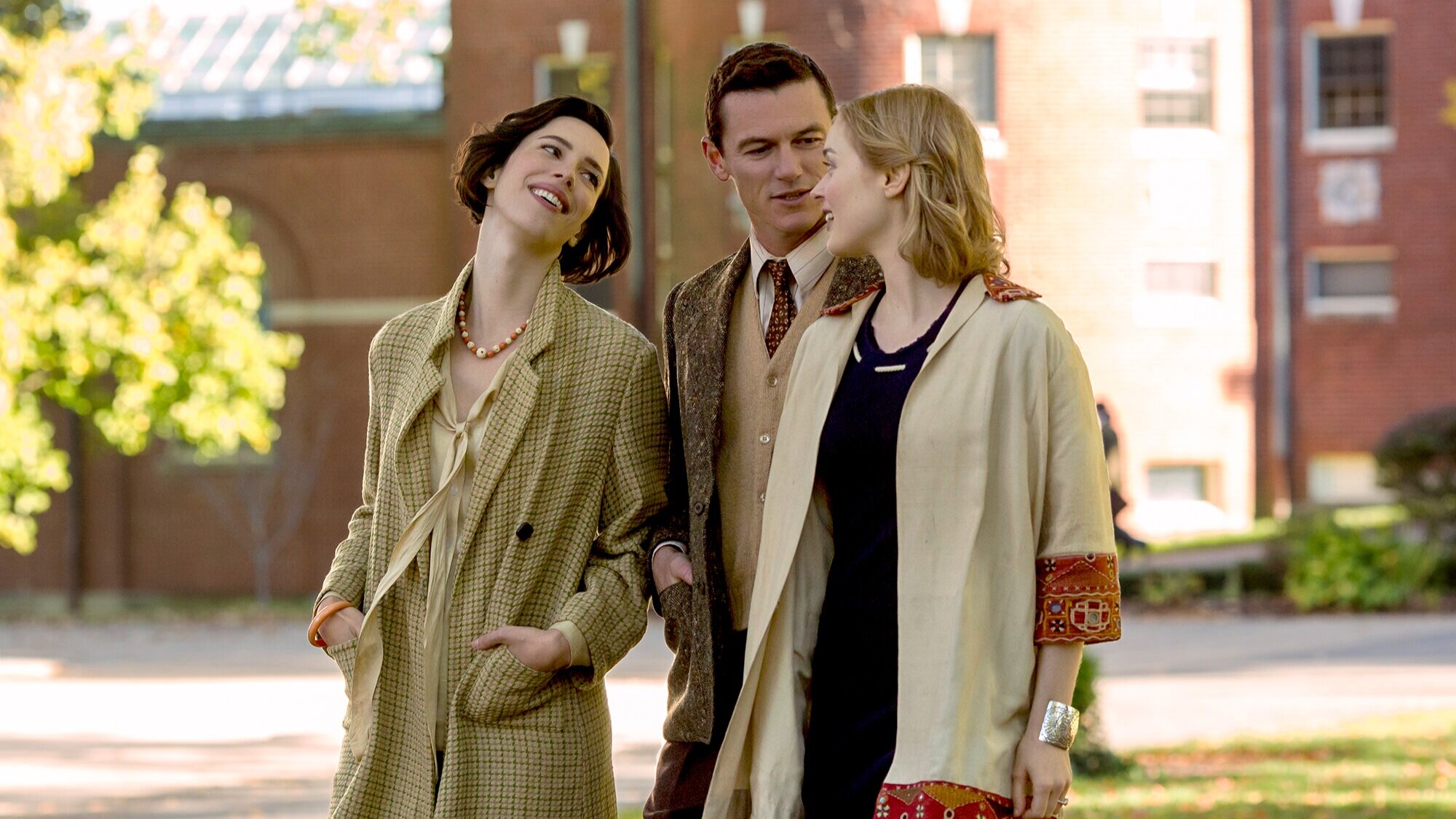Professor Marston and the Wonder Women
Baby makes four in this portrayal of a real life romantic triangle.
Rebecca Hall, Luke Evans and Bella Heathcote
You do not need to be a fan of Wonder Woman to be interested in this film about the man who created the comic books that gave the world its first popular female superhero. Angela Robinson's film begins in 1945 when protests had been made about the emphasis on bondage in the work and the author, who had published under a pseudonym, was closely questioned by guardians of morality. However, this now becomes a harmless framework, a scene to be revisited at intervals, while the film goes back to Harvard in 1928 to tell in chronological sequence the story of the man in question, one Professor William Moulton Marston, and the two women who played a crucial role in his life.
Marston (Luke Evans) was a teacher who, in the late 1920s, was working on the creation of an effective lie detector while also writing books about human relationships. These were built around four key concepts: dominance, inducement, submission and compliance. As for the women, one was his wife, Elizabeth (Rebecca Hall), an outspoken psychologist herself, and the other, first encountered when she was 22 years old, was one of his pupils, Olive Byrne (Bella Heathcote).
This film, written by Robinson herself, is effectively in three parts, of which the first is by far the most successful. This is the section showing the events that led to the trio acknowledging their mutual love and entering into a shared sexual relationship. The writing may lack the distinction of that to be found in the 2004 film Kinsey and the dialogue sometimes suggests the past seen through modern eyes, but the players readily hold us. If Evans is fine as Marston, it is nevertheless the actresses who compel. The excellent Rebecca Hall is as admirable as ever in a spiky, sharp part unlike any that she has played before and Bella Heathcote, in the contrasted role of the young and beautiful Olive who is still finding her own path, matches her. Only when it comes to a sexual threesome presented to a rhythmic song does Robinson, seeking eroticism without pornography, misjudge by introducing what comes across as an artificial, stylised tone.
However, we are only half-way through the film here. Its middle section which deals with the creation of Wonder Woman as a means of expressing Marston's sexual outlook in a way that will reach the public is much less sure-footed. In treating the whole issue of bondage it is as though Robinson is uncertain whether to question it or to endorse it and what we get feels like a kind of compromise. But weaker still are the concluding scenes. That Elizabeth and Olive lived together for over thirty years following William Marston's death from cancer in 1947 is striking, but undersold here. Before that we see how Marston brings the women together again after tensions born of the impact of the trio's life-style on their children have pulled them apart. These scenes play like a fictional weepie and the failure to convince is added to not only by the film's general vagueness about the passing years but by a failure to age the characters physically (Olive in particular reaches forty looking much like her young self). All told, then, this is a very mixed bag although much good work has gone into it, especially its first half.
MANSEL STIMPSON
Cast: Luke Evans, Rebecca Hall, Bella Heathcote, J.J. Feild, Oliver Platt, Connie Britton, Monica Giordano, Chris Conroy, Maggie Castle, Alexa Havins, Sharon Kubo.
Dir Angela Robinson, Pro Terry Leonard and Amy Redford, Screenplay Angela Robinson, Ph Bryce Fortner, Pro Des Carl Sprague, Ed Jeffrey M. Werner, Music Tom Howe, Costumes Donna Maloney.
Stage 6 Films/Topple Pictures & Boxspring Entertainment/Opposite Field Pictures-Sony Pictures.
108 mins. USA. 2017. Rel: 10 November 2017. Cert. 15.


